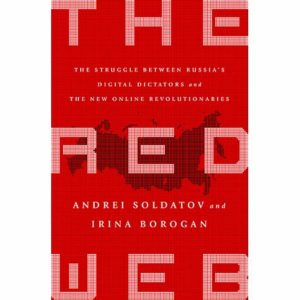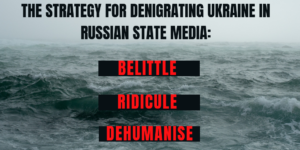The techniques used by anti-democratic state and non-state actors to disrupt or influence democratic processes are constantly evolving, says the European Parliamentary Research Service. The use of algorithms, automation and artificial intelligence is boosting the scope and the efficiency of disinformation campaigns and related cyber-activities.
In response, the EU is stepping up its efforts to protect its democratic processes from manipulation ahead of the European elections in May 2019. Listen to EPRS policy analyst Naja Bentzen (above) explaining the issues in 3 key questions on disinformation and democracy. Or read more about “computational propaganda techniques” here.
 While the European Union Action Plan on countering disinformation is undoubtedly a step in the right direction, prior concerns still remain, the European Values Think-Tank contends: namely, that High Representative Mogherini will ignore the need to strengthen the East StratCom Task Force, and that the bulk of new resources will not be used to counter Russian disinformation and will instead be directed towards the stratcom units concentrating on the Western Balkans and extremist narratives. Read the full evaluation of the Action Plan here.
While the European Union Action Plan on countering disinformation is undoubtedly a step in the right direction, prior concerns still remain, the European Values Think-Tank contends: namely, that High Representative Mogherini will ignore the need to strengthen the East StratCom Task Force, and that the bulk of new resources will not be used to counter Russian disinformation and will instead be directed towards the stratcom units concentrating on the Western Balkans and extremist narratives. Read the full evaluation of the Action Plan here.
The digital era has spurred tremendous advancements throughout human society, but it has also led to immense instability and inequality, notes Tom Wheeler, a Visiting Fellow in Governance Studies at Brookings’ Center for Technology Innovation. At the political level, the digital engine that is driving economic and social instability also provides the tools to exploit the resulting dissatisfaction so as to threaten liberal democratic capitalism, he contends:
Populism from the right can tend toward authoritarianism, while populism from the left can tend toward socialism. In the marketplace, technology has delivered a different type of extremism: a handful of companies with unfettered dominance over key components of economic activity. The internet, a decentralized collection of interconnecting networks, has created new centralized powers that siphon, aggregate, and manipulate personal information to create bottlenecks to the operation of free and open competition, he writes for Brookings.
 The nascent internet played a key role in defeating the military coup in Russia in 1991, notes Andrei Soldatov, co-author with Irina Borogan of The Red Web: The Struggle Between Russia’s Digital Dictators (2015) . However, the democratic promise of the web was never fulfilled. In the 2000s, it became a means of escape for a disaffected middle class closed out of the political process. The failed protest wave of 2011–2012 bore the mark of this ‘lost decade’. Meanwhile, in the era of political trolling, online participation has come to mean something very different, he writes for Eurozine:
The nascent internet played a key role in defeating the military coup in Russia in 1991, notes Andrei Soldatov, co-author with Irina Borogan of The Red Web: The Struggle Between Russia’s Digital Dictators (2015) . However, the democratic promise of the web was never fulfilled. In the 2000s, it became a means of escape for a disaffected middle class closed out of the political process. The failed protest wave of 2011–2012 bore the mark of this ‘lost decade’. Meanwhile, in the era of political trolling, online participation has come to mean something very different, he writes for Eurozine:
The West woke up to the threat of Kremlin trolls in 2016, however it had already been very damaging in 2014–2015. The Ukraine crisis saw the deployment of trolls to Facebook and VKontakte, as well as YouTube and Twitter. The operation was directed at Ukrainians, but it was the Russian people that were hit the hardest. The Kremlin propaganda campaign was based on three points: the legacy of the Second World War and the image of the Soviet Union as saviour of the world from fascism; grievances against the West; and fears of another bloody revolution.
Often dubbed “Putin’s chef” because of the enormous catering contracts on which he built his fortune, Yevgeny Prigozhin is the alleged money man behind the Federal News Agency, known by the Russian acronym FAN, Anna Nemtsova writes for The Daily Beast. FAN’s agenda is to wage information warfare against Putin’s and Prigozhin’s critics in Russia, Ukraine, Syria, the United States, and Africa. The number of battlefields just keeps growing, she writes:
Political figures in the Russian opposition also complain about attacks by FAN. A year ago, FAN published a story about deputy Boris Vishnevsky’s “secret meeting” with Mikhail Khodorkovsky and his aide Vladimir Kara-Murza in Tallinn. “First, there was nothing ‘secret’ about my meeting with Kara-Murza, I had published my photograph with [Kara-Murza] on social media; second, I did not meet with Khodorkovsky—that was a fake piece of news,” Vishnevsky, a deputy at the St. Petersburg legislative assembly told The Daily Beast on Saturday. “Prigozhin’s propaganda machine, FAN, is not to be trusted, they target people like me with fake news.” RTWT

Credit: eu vs disinfo
As the confrontation around the Azov Sea and the Kerch Strait escalated, so has the disinformation as well as the rhetoric denigrating Ukrainians and their country in Russian state-controlled media, notes EU vs Disinfo. Denigrating language can, however, also include disinformation; one does not exclude the other.
Long masters of disinformation, the Russians have applied effective Cold War propaganda techniques to social media, using Western democracies’ open societies and civil liberties to undermine the American and European way of life, reports suggest.
“Dismissing it as fake news misses the point,” a Western security official told The Washington Post. “It’s about undermining key pillars of democracy and the rule of law.”







